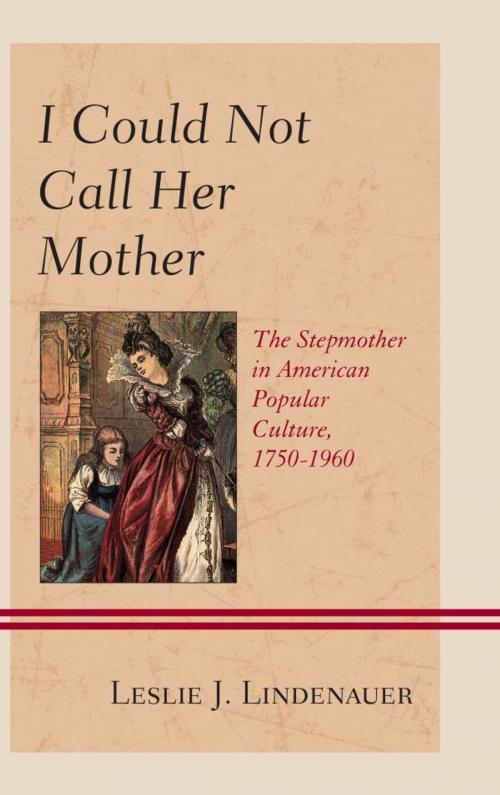I Could Not Call Her Mother
The Stepmother in American Popular Culture, 1750–1960
Nonfiction, Social & Cultural Studies, Social Science, Cultural Studies, Popular Culture, History, Americas, United States| Author: | Leslie J. Lindenauer | ISBN: | 9780739166826 |
| Publisher: | Lexington Books | Publication: | November 22, 2013 |
| Imprint: | Lexington Books | Language: | English |
| Author: | Leslie J. Lindenauer |
| ISBN: | 9780739166826 |
| Publisher: | Lexington Books |
| Publication: | November 22, 2013 |
| Imprint: | Lexington Books |
| Language: | English |
Stories of the stepmother, the substitute mother, or the “other mother” have infused popular culture for centuries and continue to do so today. She plays a substantial role in our collective imagination, whether we are a part of a step family or not. Despite the fact that the stepmother remains a prevalent figure, both in popular culture and reality, scholars have largely avoided addressing this fraught figure. I Could Not Call Her Mother explores representations of the stepmother in American popular culture from the colonial period to 1960. The archetypal stepmother appears from nineteenth-century romance novels and advice literature to 1930s pulp fiction and film noir. Leslie J. Lindenauer argues that when considered in her historic context, the stepmother serves as a bellwether for changing constructions of motherhood and family. She examines popular culture's role in shaping and reflecting an increasingly normative middle class definition of the ideal mother and family, which by the 1920s became the dominant construct.
Lindenauer adds to the rich and growing literature on the history of motherhood. It echoes and is informed by the scholarship that has defined ideal motherhood as a moving target, historically constructed. In so doing, it illuminates the relationship between ideal motherhood and ideal womanhood.
Stories of the stepmother, the substitute mother, or the “other mother” have infused popular culture for centuries and continue to do so today. She plays a substantial role in our collective imagination, whether we are a part of a step family or not. Despite the fact that the stepmother remains a prevalent figure, both in popular culture and reality, scholars have largely avoided addressing this fraught figure. I Could Not Call Her Mother explores representations of the stepmother in American popular culture from the colonial period to 1960. The archetypal stepmother appears from nineteenth-century romance novels and advice literature to 1930s pulp fiction and film noir. Leslie J. Lindenauer argues that when considered in her historic context, the stepmother serves as a bellwether for changing constructions of motherhood and family. She examines popular culture's role in shaping and reflecting an increasingly normative middle class definition of the ideal mother and family, which by the 1920s became the dominant construct.
Lindenauer adds to the rich and growing literature on the history of motherhood. It echoes and is informed by the scholarship that has defined ideal motherhood as a moving target, historically constructed. In so doing, it illuminates the relationship between ideal motherhood and ideal womanhood.















